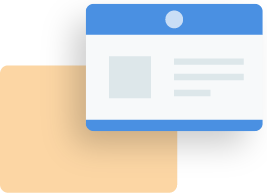In the fast-paced world we live in, effective time management is crucial for personal productivity and professional success. While digital tools and apps abound, sometimes a simple solution can be the most effective. Enter the whiteboard—a versatile tool that can aid in planning, prioritization, and time management. In this article, we explore how whiteboards can be used as powerful aids for managing time effectively, and we’ll discuss strategies for planning and prioritization to maximize productivity.
1. Visualizing Time Blocks
One of the most effective ways to manage time is by visualizing your schedule in time blocks on a whiteboard. Start by dividing your day into blocks of time, such as hours or half-hours, and create a grid on the whiteboard to represent your schedule. Then, use different colors or symbols to represent different activities or tasks, such as work, meetings, breaks, and personal time. By visually mapping out your schedule on the whiteboard, you can get a clear overview of how your time is allocated throughout the day and identify opportunities for optimizing your schedule.
2. Prioritizing Tasks with To-Do Lists
To-do lists are a classic tool for prioritizing tasks and managing time effectively. Use the whiteboard to create a to-do list for each day or week, listing all the tasks you need to accomplish. Then, use visual cues such as color coding or numbering to prioritize tasks based on urgency or importance. As you complete tasks, you can easily erase or check them off the list, providing a satisfying visual representation of your progress. By keeping your to-do list visible on the whiteboard, you can stay focused and motivated to tackle your tasks efficiently.

Photo by Christina Morillo: https://www.pexels.com/photo/man-wearing-black-button-up-long-sleeved-writing-of-board-1181309/
3. Using Kanban Boards for Workflow Management
Kanban boards are a popular method for visualizing workflow and managing tasks in a systematic manner. Create a Kanban board on the whiteboard by dividing it into columns representing different stages of your workflow, such as “To-Do,” “In Progress,” and “Completed.” Then, use sticky notes or index cards to represent individual tasks, moving them across the board as they progress through each stage. Kanban boards provide a visual representation of your workflow, making it easy to track the status of tasks, identify bottlenecks, and prioritize work accordingly.
4. Time Blocking for Focus and Productivity
Time blocking is a time management technique that involves dedicating specific blocks of time to focus on particular tasks or activities. Use the whiteboard to create a time blocking schedule, allocating blocks of time for different types of work, such as deep work, meetings, email, and breaks. By setting aside dedicated time for focused work without distractions, you can maximize productivity and efficiency. Use the whiteboard to visualize your time blocks and ensure that you’re allocating your time effectively to high-priority tasks.
5. Reviewing and Reflecting on Your Progress
Regularly reviewing and reflecting on your progress is essential for effective time management and continuous improvement. Use the whiteboard to track your accomplishments, record lessons learned, and identify areas for improvement. Create a section on the whiteboard for reflection, where you can jot down insights, achievements, and challenges encountered throughout the day or week. By regularly reviewing your progress on the whiteboard, you can gain valuable insights into your time management habits and make adjustments as needed to optimize your productivity.

Photo by ThisIsEngineering: https://www.pexels.com/photo/female-engineer-holding-presentation-3862603/
Conclusion
Whiteboards are powerful tools for managing time effectively, aiding in planning, prioritization, and workflow management. By visualizing your schedule, prioritizing tasks, and using techniques such as Kanban boards and time blocking, you can maximize your productivity and achieve your goals more efficiently. Whether you’re a student, professional, or entrepreneur, incorporating whiteboard time management strategies into your routine can help you stay organized, focused, and on track to success.


 info@cultbooking.com
info@cultbooking.com  0049 30 726225 0
0049 30 726225 0 